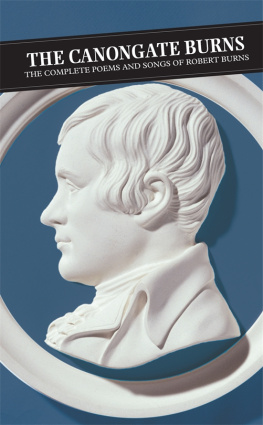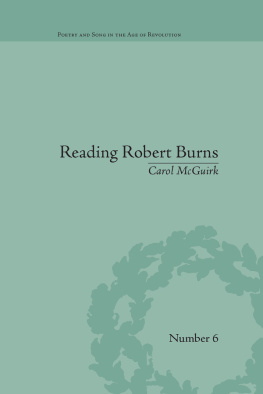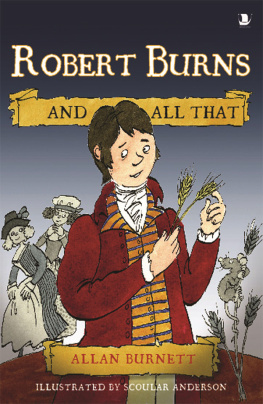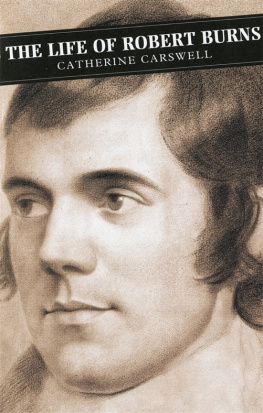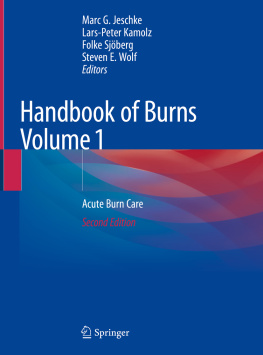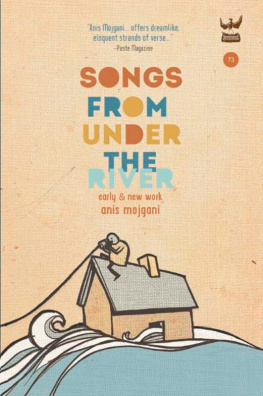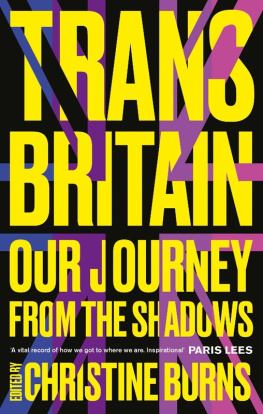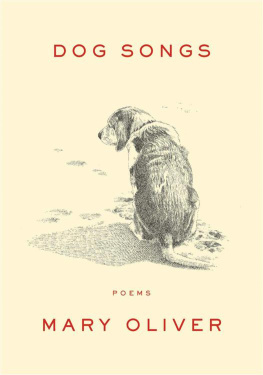The very ink with which all history is written is merely fluid prejudice.
Mark Twain, Pudd nhead Wilsons New Calendar.
I think this enlightened age, as it is called, is as much given to persecution as the most barbarous. The transportation of the Deputies and Directors is not perhaps quite so bad as that of Muir, Palmer, etc., Men persecute because they love persecution and so far as I am from believing fear to be the true cause of persecution that I begin to think that fear is the only motive that ever can persuade men to suffer those who differ in opinion from them to breathe the same atmosphere with them. This is not pleasant philosophy but I am afraid it is true.
Charles James Fox to Charles Grey, 1801.
For the first time in over two centuries we have in this single volume all Burnss surviving poems glossed and annotated. To do such editorial work has been for us a salutary and revealing task. What has fundamentally impressed us has been the tenacity of Burnss creative drive which, despite all obstacles, sustained a flow of over six hundred poems and songs over a period of twenty-two years. Such productivity also entailed that he constantly metamorphosed his day to day experiences into poetry. Thus, as we annotated the poems, making as much use of that other source of parallel commentary, his quite extraordinary and, arguably, still under valued letters, not only his biographical shape but an encompassing picture of the peculiarly fraught late eighteenth century emerged. As admirable, and even more surprising, is the sustained quality of his poetic achievement. If we compare him to Wordsworth or, even more pertinently, Coleridge, briefly his creative contemporaries and consistent admirers of his genius, Burns achieves a higher ratio of poetry of the first order than either of them.
All this was achieved in opposition to a series of diverse and formidable obstacles. With some few significant exceptions, Burnss biographers and editors have been, as we shall see, either anodyne or, worse, in some early instances, deliberately mendacious about the harsh physical, social and political environment in which he had to survive as a creative writer. Consequently this edition lays stress on his capacity not only to endure but poetically to overcome the multiple constraints he experienced. Textually and contextually, this edition, therefore, lays unique emphasis, partly by bringing some recently retrieved archival material to bear, on Burnss necessarily ironic and often oblique political life and poems. Consequent on such a new explication of Burnss political values and poetry, will be an exploration into the calculated and deeply successful manner in which, from the moment of his death, his achievement as a radically dissenting democratic poet was denied and suppressed. Indeed, what is revealed is the degree to which a whole segment of late-enlightenment liberal, Scottish culture of which Burns was an integral part was, as far as possible, obliterated from the national memory by reactionary forces which were quick to build on their total victory in the 1790s. Burnss corpse, as we shall see, was not the only thing consigned to the grave in 1796. It is, indeed, a signal example of the fact that the victors do write history.
EARLY LIFE AND LABOUR
The primary and conditioning factor of Burnss life was his experience of the often harshly brutal and almost always near impoverished nature of late-eighteenth century farm labour. We should first contemplate the physical conditions under which he had to write as a prelude to understanding the psychological and political consequences for his poetry. This has been obscured from us by the mass of sentimental, mainly nineteenth-century writing on Burns which sees him as the spokesman for a pietistic, hence politically quiescent, peasant culture.
In his quite wonderful opening stanzas to The Vision Burns describes himself half-mad, half-fed, half-sarket, portraying the fierce restrictions of work, domestic squalor and poverty in which he mainly lived. Or as he wrote from Mauchline in 1788 to Robert Cleghorn:
I am so harassed [sic] with Care and Anxiety about this farming project of mine, that my Muse has degenerated into the veriest prose-wrench that ever picked cinders or followed a Tinker. When I am fairly got into the routine of business, I shall trouble you with a longer epistle; perhaps with some queries respecting farming: at present the world sits such a load on my mind that it has effaced almost every trace of the image of God in me.
He described his early life as having the cheerless gloom of a hermit with the unceasing moil of a galley slave. Or, as in this letter to Mrs Dunlop of 1788 where, so characteristic of his letters, wit and despair blend:
the heart of the man, and the fancy of the poet, are the two grand considerations for which I live: if miry ridges and dirty dunghills are to engross the best part of the functions of my soul immortal, I had better been a rook or a magpie all at once & then I would not have been plagued with any ideas superior to breaking of clods & picking up grubs: not to mention Barn-door Cocks or Mallards, creatures with which I could almost exchange lives at any time.
Some sort of acute nervous disorder was the result of his attempt to become disciplined to the mechanistic demands of becoming a flax worker in Irvine, 1784. After moving to Ellisland farm near Dumfries most of his new found wealth from the Edinburgh edition went to save the family farm at Mossgiel. The dwelling at Ellisland is described by the young lawyer, Robert Ainslie, as ill contrived and pretty Dirty. Mrs Jean Burns is Vulgar & Common-place in a high degree and pretty round & fat a kind Body in her own way, and the husband Tolerably Attentive to her. The poets local associates are a Vulgar looking Tavern keeper from Dumfries; and his wife, more Vulgar Mr Millar of Dalswintons Gardiner and his Wife and said Wifes sister and a little fellow from Dumfries, [probably John Drummond] who had been a Clerk. Hence, the poverty and hardship of his early years, described so eloquently and bluntly to Dr John Moore, the clouterly appearance of my ploughboy carcase, the two extremes of which were often exposed to all the inclements of all the seasons, was still with Burns after his temporary fame and even more temporary riches beyond his Edinburgh edition of 1787.
Nor, leaving aside the problem of his vowed fidelity to a Pittite regime he loathed, were his Excise duties any escape from devouring physical drudgery: I am jaded to death with fatigue. For these two months or three months, on an average, I have not ridden less than two hundred miles per week. The paper work of the Excise also ate into not only his time but his spirit:
Sunday closes the period of our cursed revenue business, & may probably keep me employed with my pen until noon. Fine employment for a poets pen! There is a species of the Human genius that I call, the Ginhorse Class: what enviable dogs they are! round, & round, & round they go Mundells ox that drives his cotton mill, their exact prototype without an idea or wish beyond their circle; fat sleek, stupid, patient, quiet & contented: while here I sit, altogether Novemberish, a damned melange of Fretfulness & melancholy; not enough of the one to rouse me to passion; nor of the other to repose me in torpor; my soul flouncing & fluttering round her tenement, like a wild Finch caught amid the horrors of winter & newly thrust into a cage.
Burnss case as medical study, symptomatically discernible in the letters and, indeed, in much of the poetry, is a grim one. If he was atypical in the extreme mood swings that seem integral to his creativity (it was specifically with Burns in mind that Wordsworth wrote in Resolution and Independence

